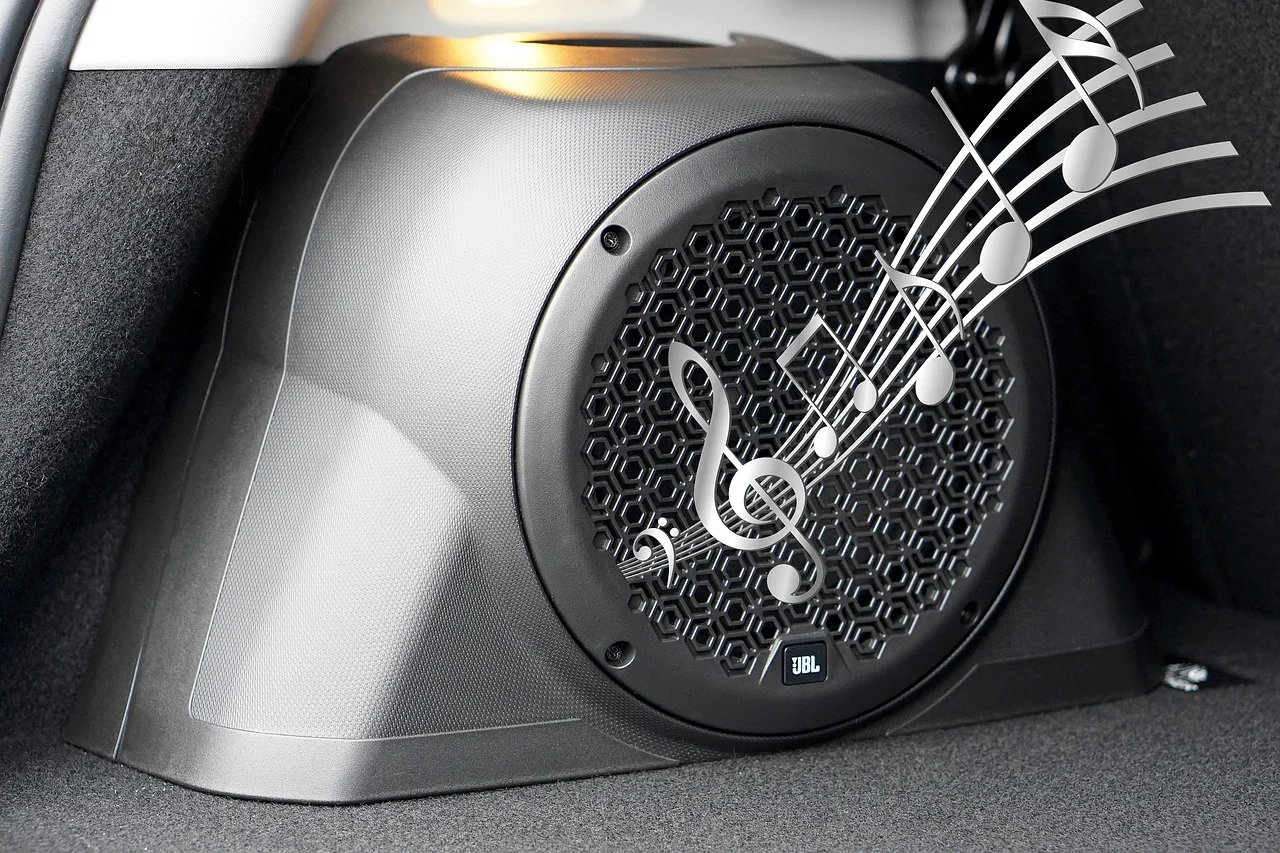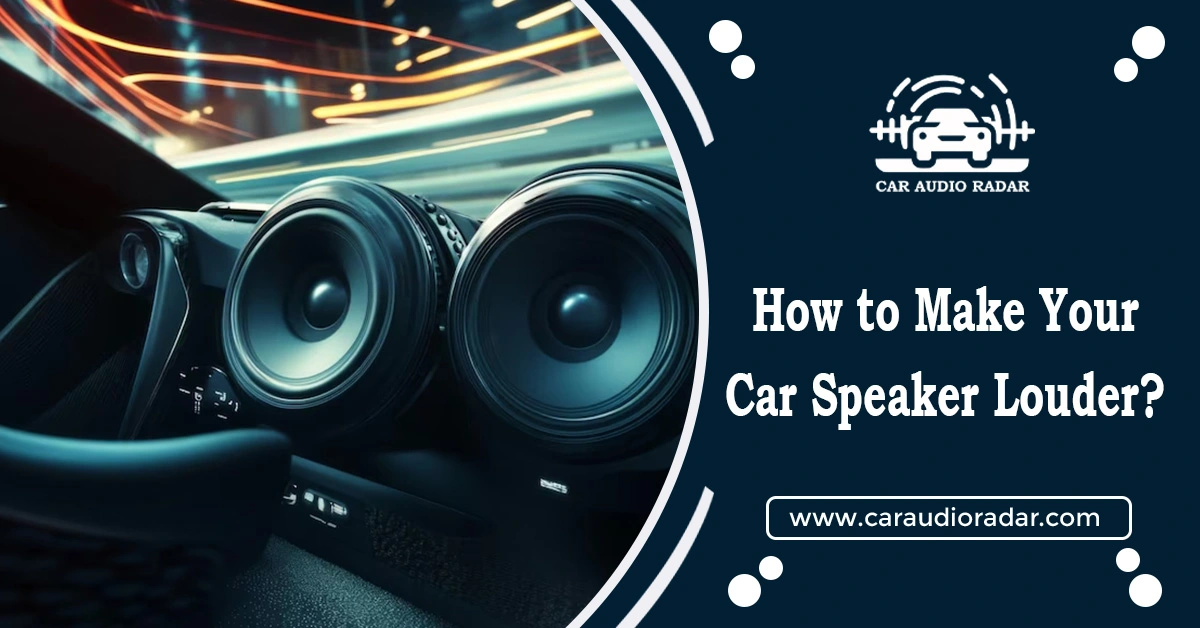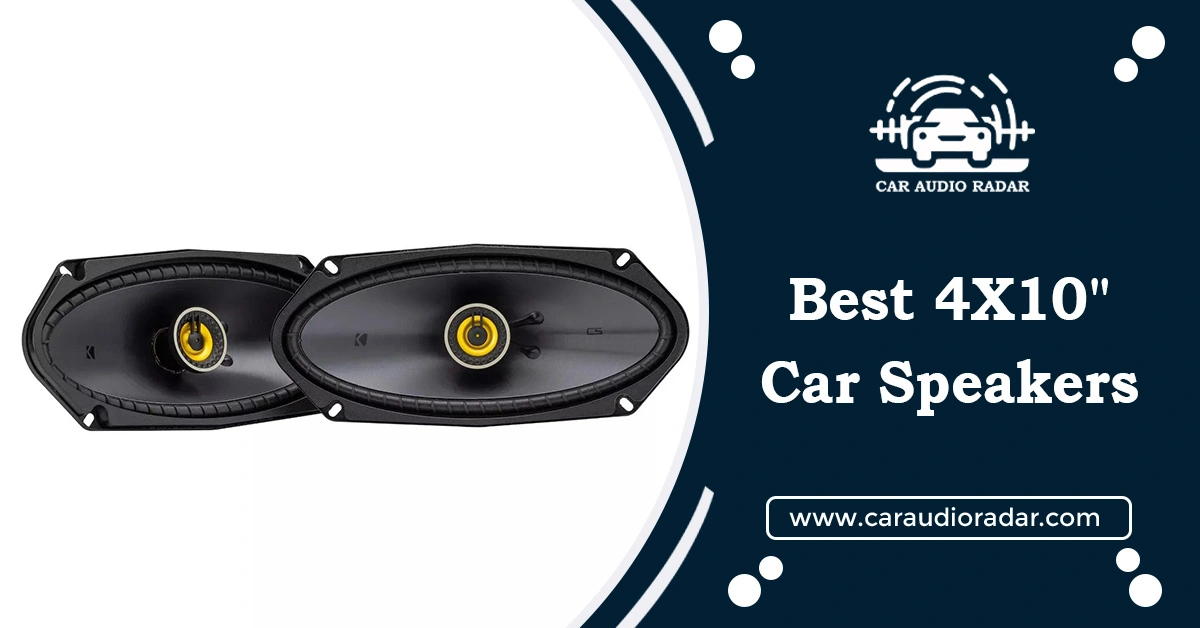
Jump to
Car speaker sound muffled: Reasons, Troubleshooting and Solutions

It can be annoying if you enjoy listening to music in your car and find that the car speaker sound muffled. Fortunately, muffled car speakers are a common issue, but fixing it is simple. If you’re here for answers on why it happens and how to solve it, keep reading for clear and helpful information.
Common Reasons of Muffled Car Speakers
Here, some common reasons are describe why car speaker sound muffled. Also, here we explain how you can Diagnose the reasons seamlessly.
Reason 1: Wiring Mistakes That Make Car Speakers Sound Muffled
If your car speakers aren’t singing the way they used to, it might be due to a common problem – wiring mistakes. When speaker wires are not connected correctly, it can mess up the entire music experience, making it less enjoyable. Incorrectly connected wires can distort the audio signal, leading to a drop in clarity and sound precision.
Various reasons can cause this misalignment, such as reversed polarity, mismatched impedance, or loose connections. When speakers with opposite polarities are connected, they cancel each other out, creating a weak or hollow sound.
Here’s a step-by-step guide to checking and fixing speaker wiring:
Step 1: Power Off
Always turn off your system first for safety and to avoid damaging your speakers.
Step 2: Inspect the Wires
Check for any signs of damage, like frayed wires, broken insulation, or corrosion on the terminals. Damaged wires can lead to muffled sound and hinder signal transmission.
Step 3: Check Connections
Ensure the wires are securely connected to the speakers and amplifier. A loose connection can cause intermittent sound or muffled audio.
Step 4: Verify Polarity
Check that the wires are connected to the correct terminals – positive to positive and negative to negative. Reversed polarity can result in poor sound quality.
Step 5: Test Impedance
Use a multimeter to check the impedance of your speakers. The impedance should match the output impedance of your amplifier for optimal sound quality.
Step 6: Replace if Necessary
If you find any visible signs of damage, replace the cables or speakers as required.
Regularly replacing your wires, even if they look fine, is essential to maintain optimal audio output, as degraded wires can significantly impact audio performance. Investing in wires with gold-plated connectors can further enhance sound quality.
Reason 2: Amplifier Issues: Settings and Configuration Mistakes
Improperly using an amplifier is a common cause of muffled sound. Mismatched amplifiers and speakers can result in subpar sound quality. This issue often arises from pushing the amplifier beyond its capabilities.
Here’s a simple guide on how to properly match an amplifier with speakers:
Understand the Power Requirements
Find out the power requirements of your speakers and select an amplifier that can deliver power within this range at the speaker’s impedance level.
Impedance Matching
Pair a 4-ohm speaker with an amplifier capable of delivering power at 4 ohms. Match the impedance ratings for optimal performance.
Sensitivity Matters
Consider the sensitivity rating of speakers concerning the amplifier level. Higher-sensitivity speakers require less power from the amplifier for the same volume.
Reason 3: Obstructions That Muffled Speaker Sound
To achieve optimal sound quality, consider obvious obstacles and subtle factors like room acoustics and sound-absorbing materials. Here are tips to avoid common obstacles and improve speaker sound:
Understand Room Acoustics
The size and shape of your room impact sound quality. Use a mix of reflective and absorptive materials for optimal sound balanc
Avoid Placing Speakers in Corners or Near Windows
Position speakers away from corners and windows to prevent unwanted echoes and sound reflections.
Ensure Clear Space in Front of the Speakers
Avoid obstructions between you and the speakers, and ensure ample space for effective sound dispersion.
Maintain Adequate Space Behind Speakers
Sufficient space behind speakers minimizes sound reflections and interference.
Be Mindful of Subwoofer Placement
Position subwoofers to avoid obstructions blocking air intake, which can cause interference and muffled sound.
Test and Adjust Speaker Positions
Experiment with different angles and distances to find the ideal setup for your listening environment.
Check for Physical Obstructions
Inspect speakers for dust or dirt that could block sound output. Regular cleaning ensures optimal performance.
Reason 4: Wrong Settings on AV Receiver
AV Receiver Settings: Fine-Tune for Clarity
Your AV receiver plays a crucial role in your audio system. If your speakers sound muffled, incorrect receiver settings might be the cause. Check these common issues:
Bass Management Settings
Adjust crossover frequencies to avoid blurring or muffling sound. Setting the crossover frequency too low can lead to poor sound quality.
Speaker Size Setting
Select the appropriate speaker size setting based on their capability to handle different sound frequencies.
Equalizer Settings
Avoid excessively boosting bass, which can drown out other sounds and make the audio muffled.
You can ensure your speakers deliver clear, high-quality sound by checking and adjusting these settings on your AV receiver.
Top 4 Solutions for Car Speaker Sound Muffled
Method 1: Get Better Speaker Wires for Clearer Sound
If you want to fix muffled speakers, start with good wiring. It’s crucial, and you don’t need the most expensive wires. Go for a bit better quality than the basics. Superior wires have thicker conductors and better insulation, reducing resistance and signal loss
Method 2: Keep Your Speakers Clean
Remember to clean your speakers now and then. Dust can build up over time, harming speakers and causing sound issues. This is a common reason for muffled car speakers. Cleaning is easy and quick, so make it a habit even if you don’t notice any muffled sounds.
Method 3: Position Speakers Correctly for Better Sound
Where you put your speakers matters. For optimal sound, they need space to do their job well. It’s best to place them in a larger space and away from walls, furniture, or anything that might mess with their performance or create a muffled sound.
Method 4: Adjust the Settings of the Receiver
If your car speakers or other devices aren’t quite right, play around with your receiver settings. You can tweak things like speaker size, volume, and other configurations until you figure out and solve the issue.
Conclusion
Muffled sounds are usually a small deal to figure out and fix. Using the tips in this article, you should find where the problem is coming from and do what’s needed to improve it. But if you need more clarification on any step, asking a pro is always a good idea. That way, you ensure everything gets done right, and your speakers will sound brand new.
I hope this article helped you, that you learned something, and that I gave you all the info you needed about why your car speaker sound muffled. So, the next time you play your favorite song, you can enjoy the sound without muffling.
Frequently asked Questions (FAQs)
Fixing car speakers is not difficult. When your speakers sound muffled and impact your enjoyment of music during drives, don’t worry. The repair is easy, and you can do it yourself.
No, muffled sound is not normal and usually indicates a problem with the audio system. It could be due to incorrect audio settings, speaker placement, low-quality audio sources, or speaker damage. If your sound is muffled, it is recommended that these potential issues be investigated.
Yes, a blown speaker can often sound muffled. The damage can cause it to struggle with certain frequencies, resulting in a distorted, static, or muffled sound. It’s essential to address this issue quickly to avoid further damage to the speaker or the rest of your audio system.
Yes, many muffled sound issues can be resolved through DIY methods like cleaning, adjusting settings, and using sound-dampening materials.
Distortion at high volumes can be due to factors like inadequate power handling, improper speaker placement, or clipping.
Cleaning your car speakers every few months can help prevent the buildup of dust and debris that can lead to muffled sounds.
Yes, a graphic equalizer allows you to fine-tune frequency bands, helping to enhance sound clarity and balance.
Upgrading your car’s audio system can significantly improve sound quality, but it’s important to address other factors like speaker placement and maintenance as well.
Cooper Katzeel
Car Enthusiast
Cooper Katzel, a dedicated car enthusiast, delves into the world of automobiles and audio systems. With a deep interest in cars and a focus on superior sound, Cooper’s expertise traverses the spectrum. His journey is a delightful exploration of automotive wonders and the world of car speakers. Cooper’s passion and technical know-how make him a trusted advisor for car enthusiasts.
Follow On Instagram
Recent Posts
- All Post
- Blog
- Car Speaker
- Car Subwoofer
- Pro Tips & Guides
- Back
- Speaker Wire



Dream Life in Paris
Questions explained agreeable preferred strangers too him her son. Set put shyness offices his females him distant.


